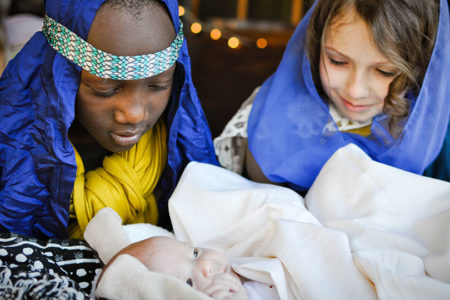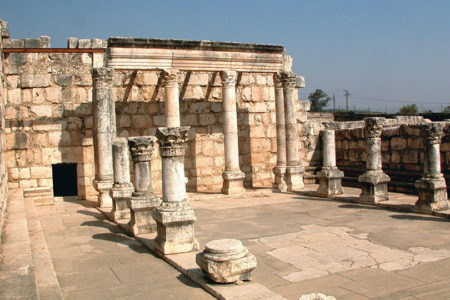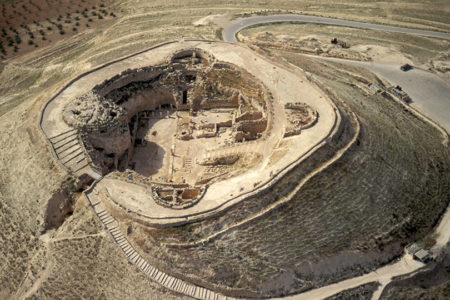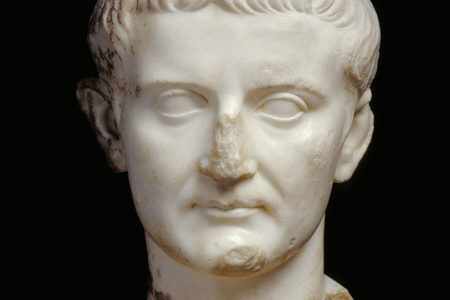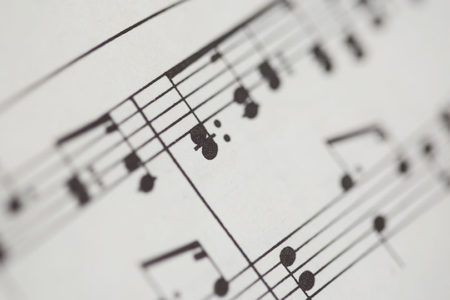Israel’s Glorious Kingdom
Zechariah 14:8–15
As Zechariah’s prophecy neared its conclusion, the prophet described a number of physical changes that will take place in Israel immediately prior to the establishment of the Millennial Kingdom. Israel’s topography will be dramatically altered when the Messiah returns, preparing not only Israel but the world for the Lord’s Millennial rule.
The moment Messiah’s feet touch the Mount of Olives (v. 4), an earthquake will ensue, flattening the land around Jerusalem and greatly elevating Jerusalem itself above the surrounding area.
The Mighty River
Changes in Jerusalem’s topography will radically alter the water situation within the city. A mighty river will be created that flows from Jerusalem and feeds the entire Judean desert:
And in that day it shall be that living waters shall flow from Jerusalem, half of them toward the eastern sea and half of them toward the western sea; in both summer and winter it shall occur (v. 8).
This massive subterranean river will flow from Jerusalem into the Dead Sea to the east and the Mediterranean Sea to the west. The river will irrigate the desert surrounding the city, causing the Negev to blossom like a rose with foliage and produce (Isa. 35:1, 6). Many prophets foretold of the same event (Ps. 46:1–4; Ezek. 47:1–12; Joel 3:18).
According to Ezekiel, the river will flow from the Temple in Jerusalem, emptying into the Dead Sea and turning it into a fresh-water lake that will produce a great multitude of fish, to the delight of fishermen in that day (Ezek. 47:1–12).
Although this is a physical river, it is called “living waters” because it will flow year-round (v. 8). Living water is an Old Testament expression that refers to a flowing river in contrast to a stagnant one. During His ministry, Jesus gave the phrase living water spiritual significance when He used it to speak of the fullness of eternal life (Jn. 7:38–39), especially when dialoguing with the Samaritan woman (4:10, 14).
The Messiah’s Rule
Zechariah continued: “And the Lᴏʀᴅ shall be King over all the earth. In that day it shall be—‘The Lᴏʀᴅ is one,’ and His name one” (v. 9).
When Jehovah establishes His earthly reign through the Messiah, Satan will no longer have any control as the “prince of the power of the air” (Eph. 2:2). He will be bound and cast alive into the bottomless pit where he will remain for 1,000 years (Rev. 20:1–3). Messiah alone will take rightful rule over all the earth and make the city of Jerusalem His capital (Jer. 3:17).
The phrase The Lᴏʀᴅ is one, and His name one describes the Lord’s universal rule and reign. (See Zechariah 4:14; 6:5.) It does not mean that Jehovah will possess things in the future that He has no control over today; He controls everything. But in the Millennium, Jehovah will be recognized as the one and only sovereign Lord.
The word for “one” in verse 9 is the Hebrew echad, which speaks of a unique oneness possessed only by Jehovah—the compound oneness of the triune God as expressed in the Shema, “Hear, O Israel: The Lᴏʀᴅ our God, the Lᴏʀᴅ is one!” (Dt. 6:4, emphasis added). The Shema embodies the very essence of Israel’s covenant confession and faith, encapsulating Israel’s faith in the monotheistic God.
In the Millennium, God will be universally recognized, accepted, and worshiped as the only unique, solitary, and incomparable God in the universe.1 Never since the fall of man will humankind so recognize the triune God. There will be no ambiguity concerning whom humanity should believe in and worship. Notice that Zechariah does not refer to our God, because Jehovah—the one and only true God—will be the one in whom all men and nations will believe.
As mentioned, Jerusalem and the surrounding area will be significantly altered at the Lord’s return:
All the land shall be turned into a plain from Geba to Rimmon south of Jerusalem. Jerusalem shall be raised up and inhabited in her place from Benjamin’s Gate to the place of the First Gate and the Corner Gate, and from the Tower of Hananel to the king’s winepresses (v. 10).
The city will be greatly elevated and expanded beyond its size and height today. Jerusalem, in all its pristine beauty, will tower over the area and be visible from a great distance, as people make their pilgrimages to it.
What will the area look like? First, the plain surrounding Jerusalem will reach from Geba of Benjamin, situated six miles to the northeast corner of Jerusalem (Josh. 21:17; 2 Ki. 23:8), to Rimmon in the southwest, situated 35 miles from Judah (Neh. 11:29). This plain is the Arabah, a flat valley about 100 miles in length that runs between the Dead Sea (1,300 feet below sea level) and the Gulf of Aqaba (300 feet above sea level), making the Arabah the deepest valley on Earth.
During the Millennial Kingdom, Jerusalem will be rebuilt and greatly enlarged to adequately provide for the Messiah’s capital, government, and new worship system. Zechariah envisioned a Jerusalem far larger than the Jerusalem of his day or even the city before its destruction by Babylon. In the Millennium, Jerusalem will extend from Benjamin’s Gate on the north wall (the Gate of Ephraim mentioned in 2 Ki. 14:13) to the First Gate on the northeast corner, from the Corner Gate on the northwest corner to the Tower of Hananel (perhaps in the southeast corner) “to the king’s winepresses” in the king’s gardens south of the city near the Valley of Hinnom.2 These dimensions give us, as they did the people of Zechariah’s day, an indication of Jerusalem’s size during the Messiah’s rule on Earth.
The inhabitants of Jerusalem will live in safety and security: “The people shall dwell in it; and no longer shall there be utter destruction, but Jerusalem shall be safely inhabited” (v. 11). In other words, Jewish people living there during the Millennium will never fear destruction again.
The Massacre Reviewed
In sharp contrast to the safety provided for the surviving Jewish remnant, annihilation is promised for Israel’s enemies, who are under the curse of God. Verse 12, like verse 3, mentions the Lord fighting against the nations that invade Israel. In verses 12–15, Zechariah described how the Lord will defeat and destroy these nations at the time of Armageddon. Jehovah will annihilate Israel’s enemies by three means: plague, panic, and power.
First, a plague will strike the invading armies:
And this shall be the plague with which the Lᴏʀᴅ will strike all the people who fought against Jerusalem: Their flesh shall dissolve while they stand on their feet, their eyes shall dissolve [decay] in their sockets, and their tongues shall dissolve in their mouths (v. 12).
The words plague (Hebrew, maggephah) and strike (Hebrew, magaph) come from the same Hebrew root and mean to “strike” or “smite” with a supernatural pestilence, that is, to slaughter with divine judgment. Both people (v. 12) and animals within the enemy’s camp are marked for destruction. The plague will fall “on the horse and the mule, on the camel and the donkey, and on all the cattle that will be in those camps. So shall this plague be” (v. 15).
All those who attack Jerusalem will be eradicated because of God’s curse. The plague will consume the enemy soldiers while they stand on their feet, leaving only skeletons. It will strike so quickly that men’s eyes and tongues will decay instantaneously, an indication of how rapidly this plague will kill the army in the moment of its victory.
Such destruction is not unlike what happened when the atomic bomb exploded over Hiroshima, Japan, in 1945.
Second, the Lord will send panic, or confusion, on the invading nations:
It shall come to pass in that day that a great panic from the Lᴏʀᴅ will be among them. Everyone will seize the hand of his neighbor, and raise his hand against his neighbor’s hand (v. 13).
God will confound the armies that war against Jerusalem. The armies will panic; turn their weapons on each other; and in their madness, kill their own soldiers. As God confounded Israel’s enemies to destroy themselves in the past, so will He do again (Jud. 7:22; 1 Sam. 14:20; 2 Chr. 20:23).
Third, God will give Judah power to utterly destroy the armies that invade Jerusalem, and “Judah also will fight at Jerusalem” (v. 14). The Jewish remnant that initially escaped the invasion of Jerusalem through a valley divinely opened by Jehovah (vv. 4–5), will return to Jerusalem and kill the invaders who survive God’s wrath during the campaign of Armageddon.
Once the invaders are dead, Israel will gather the wealth of the surrounding nations, “gold, silver, and apparel in great abundance” (v. 14). The spoils of war will be enormous.
The prophecies of Zechariah 14 are not presented in chronological order. Here is the proper order of their fulfillment.
- All the nations of the world will invade Israel in a campaign of battles culminating in what is commonly called Armageddon. During the invasion, Jerusalem will be captured, houses ransacked and plundered for spoil, women raped, and half of the population exiled into slavery (vv. 1–2).
- At the Messiah’s Second Coming, phenomenal changes will occur in the heavenly luminaries (vv. 6–7; cf. Mt. 24:29).
- In Israel’s darkest hour, the Messiah will appear and destroy the nations coming to war against it (v. 3). The armies will be destroyed by three means: a plague (vv. 12, 15); panic, causing them to turn on themselves (v. 13); and later, by the divine power Israel will receive to annihilate those who remain (v. 14). Israel then will gather the spoils of war (v. 14).
- When the Messiah arrives, His feet will step on the Mount of Olives, causing it to split apart and form a large valley that will allow a surviving remnant to escape the carnage of Jerusalem (vv. 4–5).
- A mighty river will flow from Jerusalem, watering the Negev and emptying into the Dead Sea and Mediterranean Sea (v. 8).
- The Messiah will rule the earth from Jerusalem, and its inhabitants will live in safety forever (vv. 9–11).
- In the Millennium, nations will be required to appear in Jerusalem to worship the Lord and to keep the Feast of Tabernacles (v. 16). We will cover this topic in the next article.
ENDNOTES
- Duane Lindsey, “Zechariah,” The Bible Knowledge Commentary: Old Testament, ed. John F. Walvoord and Roy B. Zuck (Wheaton, Ill.: Victor Books, 1985), 1,570.
- Walter C. Kaiser, Jr., The Preacher’s Commentary: Micah—Malachi (Nashville: Thomas Nelson, 1992), 23:439–440.

